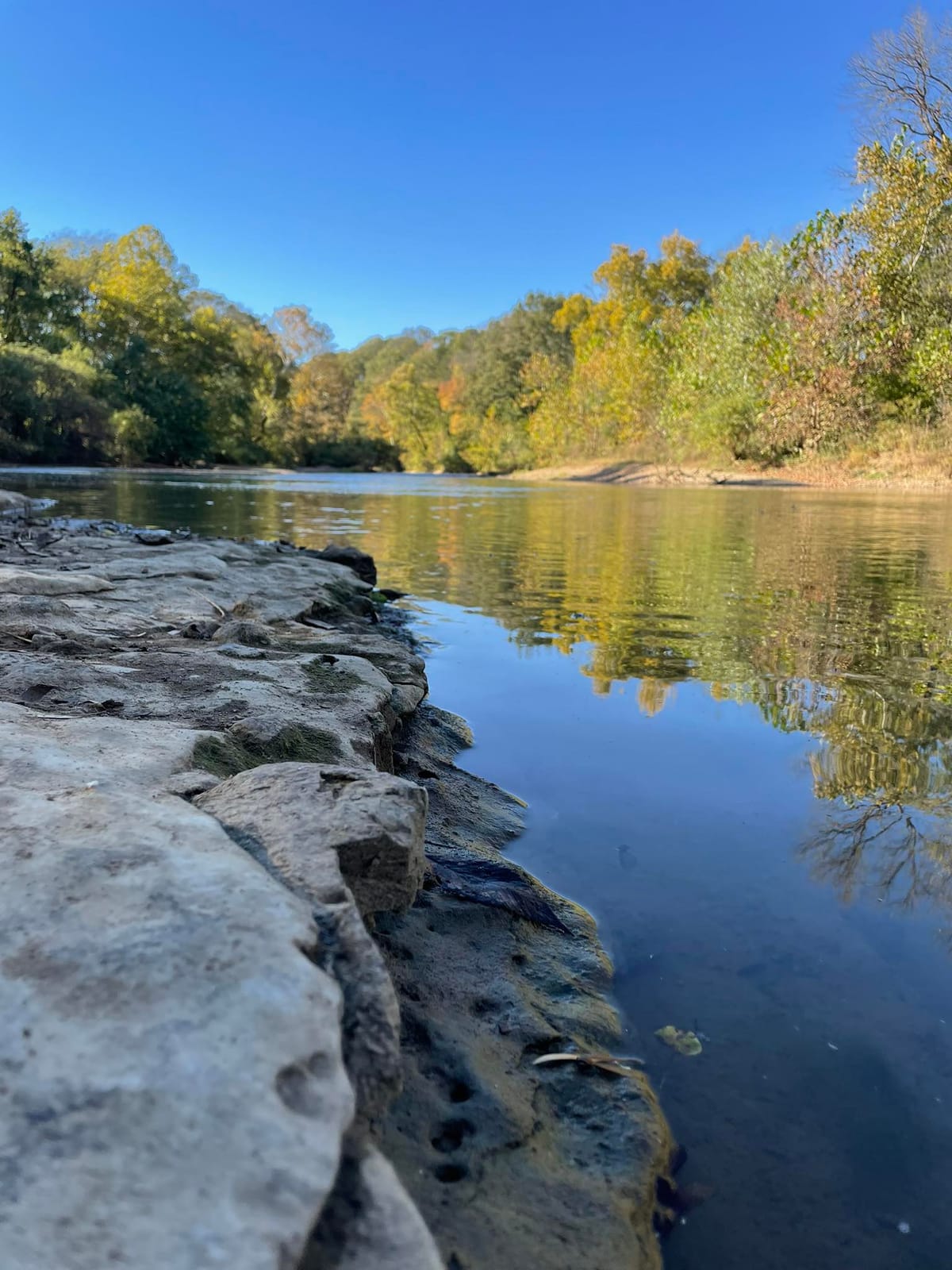$250M resort development near Narrows faces local opposition
Opposition is building among locals as plans progress for the proposed $250 million Bell’s Reserve resort set on a property of 560 acres near the Narrows of the Harpeth in Kingston Springs.

Opposition is building among locals as plans progress for the proposed $250 million Bell’s Reserve resort set on a property of 560 acres near the Narrows of the Harpeth in Kingston Springs.
Nashville developer Michael Hayes, CEO of C.B. Ragland, is early in the planning process for a project that “envisions a rural resort in scenic Cheatham County offering high-quality lodging, outdoor recreation, wellness, fine dining, and a tranquil natural setting.”
According to a handout Hayes has made available to several community members, Bell’s Reserve will feature 80 “cottage style,” single bedroom units and 40 two to four bedroom “branded residences.” Branded residences are residential properties developed in partnership with well-known luxury brands. They combine the exclusivity of private living with the services and amenities of a luxury brand, typically offering hotel-level services like concierge, in-residence dining and housekeeping.
The development – which plans to only utilize 100 of the 560 acres – will also feature two small restaurants, a spa and fitness center, a farmstead and barn, outdoor recreation areas like a lake and spaces for hiking, biking, fishing, archery, horseback riding, kayaking and swimming.
Hayes gave an initial presentation to the Cheatham County Commission during its July 14 workshop. [Hayes begins his presentation at the 2 hour and 5 minute mark]. No vote was made on Hayes’ presentation at the workshop last month, but there was about 10 minutes of discussion amongst the lawmakers. For example, Commissioner Mike Breedlove – who represents Kingston Springs – voiced his excitement about the proposed project. “I see this as such a great future,” he said. “They want to create a footprint that’s just spectacular and beautiful.”
Commissioner Jimmy Hedgepath, who also represents Kingston Springs, snapped at Breedlove, noting that at the time, he had 225 residents who had called him in opposition to the project. “I don't have any choice but to go with what people say. I got 225 names here in opposition to this,” Hedgepath said. “You was elected to come here and make a decision on the people you represent.” Hedgepath has since stated that number has grown to nearly 250.
One resident opposing the development is Linda Ryder, who has lived along the Narrows for 30 years. Ryder presented her argument against the potential Bell’s Reserve development during the County Commission meeting on Aug. 18. [Ryder’s presentation begins at the 13 minute and 35 second mark]. Commissioner Breedlove was absent.
Ryder’s main argument was that because the 560-acre site is currently labeled a “rural area” outside of the county’s Planned Growth Area, according to the county’s Growth Plan for 2022-2042, it is illegal to build a planned unit development (PUD) at that site. Hayes noted during his presentation last month that the site is currently labeled as “agriculture” and they plan to get a special exception from the commission to build a PUD.
“Because this property is located in a county rural area, not in a growth area, it's illegal,” Ryder said. “The zoning is not appropriate.”
According to the Cheatham County zoning law Ryder presented at the meeting, rural areas are “to be preserved as agricultural lands, forests, recreational areas, wildlife management areas or for uses other than high density commercial, industrial and residential development.”
Amending the county’s growth plan would not be impossible, though the state of Tennessee noted that it’s a “difficult and time consuming process” and only 25 of its 95 counties have ever done so. Tennessee state law notes that an amendment to the growth plan can be made after the plan has been in effect for three years. If an amendment is proposed, the mayor must reestablish the coordinating committee within 60 days of the proposal. The committee then has six months to recommend their approval or disapproval. The amendment must then be approved by the county, each municipality and the local planning advisory committee before the growth plan can be changed.
During her presentation, Ryder also reminded the commission of their legal duties under the Tennessee Open Meetings Act, which states that they must provide adequate public notice to constituents ahead of a meeting “that includes discussion or deliberation toward a decision” that will be voted on.
A 2023 amendment to the act states that “at least 48 hours prior to a meeting, a local government legislative body shall make available to the public, at no charge, the agenda for the upcoming meeting in a place accessible to the public. The agenda must reasonably describe the matters to be deliberated or acted upon during the public meeting.”
The July 14 workshop agenda labeled Hayes’ address as “New Subdivision In Kingston Springs Presentation.”
Ryder ended her presentation, noting that this massive development will change the trajectory of the community. “They say we won’t see it from [the river], but we’re going to feel it for years to come.”
Hayes said he hopes to hold a town hall meeting with the community in Kingston Springs at the end of September.



